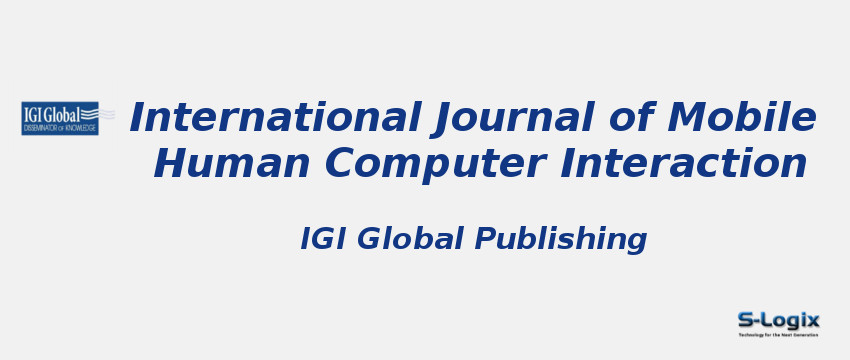Journal Home: Journal Homepage
Editor-in-Chief: Joanna Lumsden
Print ISSN: 1942-390X
Electronic ISSN: 1942-3918
Abstracting and Indexing: Scopus
Imapct Factor 0.2: 2024
Subject Area and Category: Computer Science, Human-Computer Interaction
Publication Frequency:
H Index: 23
Q1:
Q2:
Q3:
Q4: Human-Computer Interaction
Cite Score: 0.8
SNIP: 0.103
Journal Rank(SJR): 0.111
Guidelines for Authors: International Journal of Mobile Human Computer Interaction Author Guidelines
Publisher: The Information Resources Management Association (IRMA)
Country: United States
